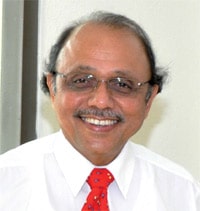
Dr K Ramnarayan took charge as the fifth Vice-Chancellor of Manipal University last year. He has been with the Manipal Group for over three decades in different academic and leadership positions.In conversation with Pragya Gupta, he shares his views on higher education scenario in India
How do you see higher education evolving in India with respect to the global scenario?
The evolution of higher education occurs in three stages: informative learning (to prepare experts), formative learning (socialising the learners) and transformative learning (to provide professionals and change agents). The Indian education sector should be able to generate more avenues for transformative learning. There is an increased awareness about the globalisation of education and world class universities. The need to adopt the right systems, policies, ideals and methods to attract international faculty and students has led Indian universities to introspect about incorporating newer initiatives in higher education.
According to you, what role does ICT play in universalising education?
At present, the gulf between technology and basic educational system is really large. Given the limited resources available in the educational systems in the developing world, newer technology options could offer a paradigm shift in educational efficiencies. It is essential that better teacher training is offered on the use of ICT in the classroom. Universities and research institutions, providing dedicated high speed networks that enable access to online resources for students and teachers is usually available now. We need to build on this foundation.
Kindly mark your initiatives in education and for the university?
Teachers are the primary agents of good formal education, providing motivation through inspiration, encouragement and challenge. We plan to pay more attention to the process of encouraging, training, and mentoring teachers. To achieve this, Manipal University has set up the Manipal Centre for Professional & Personal Development (MCPD).This centre has a vision and commitment to empower the academic faculty, students and non-academic faculty of all institutions of MU. It conducts programs designed for enhancing academic skills, nurturing professional growth and imparting team building and leadership skills.
Manipal University provides each student with a laptop and has wi-fi enabled campuses.
What are the key challenges in front of higher education?
Higher Education enrolments in India have been growing steadily and there are expected to be 40 million students by 2020. India has a demographic dividend (70 percent below the age of 35 years), which means we have a very large number of youngsters actively seeking higher education in the coming years. Capacity utilisation is a key concern, the shortage of faculty (we need about 45,000 PhDs and an equal number of M. Phils.) and poor infrastructure are also challenges that need to be tackled.
As more and more universities make fully online degree programs available, the way students access higher education has changed significantly. We need to address issues about the manner in which online education has impacted and changed student learning.
Please add your suggestions?
Technology can be created fast, cheaply and constantly, but it cannot be a remedy for all the ills of the education system. The difficulty of creating a good teacher especially in developing countries has relation to various social problems. We need to invest both in teachers, and technology to take higher education forward.
Having been a teacher for almost four decades, I passionately believe that teaching is caring, being creative and ultimately about nurturing students. ICT can help by making things easier for them. Techology can and will always supplement, not supplant, a teacher. A great teacher inspires first, influences next and third and only third, informs. Technology can help teachers teach more, reach more, touch more but can never totally replace the living, loving teacher.
|
|








 Dr K Ramnarayan,Vice-Chancellor,Manipal University
Dr K Ramnarayan,Vice-Chancellor,Manipal University













